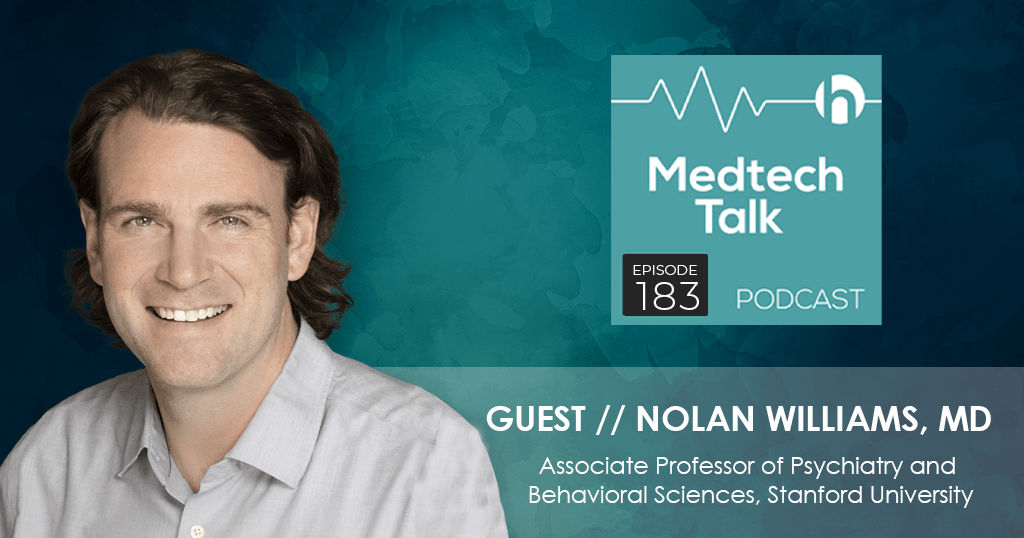Too often we define the Medtech sector by the number of dollars raised, IPOs helped or companies sold. But the focus neglects the very foundation of the sector: the people. Join the Medtech Talk Podcast each month to hear from entrepreneurs, investors and executives who spend their days developing the tools that make sick people well and health care more efficient.

Though the stigma around mental illnesses has lessened, there is an ongoing mental health crisis affecting the country—and the rest of the world. In this episode of Medtech Talk, host Geoff Pardo speaks with Nolan Williams, M.D. Associate Professor of Psychiatry and Behavioral Sciences at Stanford University, about how electrical signaling abnormalities in the brain could be behind mental illnesses and the different options used to treat these ailments. Dr. Williams also delves into how his background in psychology and neurology helped him better understand patients in crisis, how Magnus Medical’s methods differ from traditional transcranial magnetic stimulation therapy, and the difficult circumstance of the current state of hospitals and inpatient units.
Dr. Williams is an Associate Professor within the Department of Psychiatry and Behavioral Sciences and the Director of the Stanford Brain Stimulation Lab. Dr. Williams has a broad background in clinical neuroscience and is triple board-certified in general neurology, general psychiatry, as well as behavioral neurology & neuropsychiatry. Themes of his work include (a) examining the use of spaced learning theory in the application of neurostimulation techniques, (b) development and mechanistic understanding of rapid-acting antidepressants, and (c) identifying objective biomarkers that predict neuromodulation responses in treatment-resistant neuropsychiatric conditions. Dr. Williams' work has resulted in an FDA clearance for the world's first non-invasive, rapid-acting neuromodulation approach for treatment-resistant depression. He has published papers in high-impact peer-reviewed journals, including Brain, American Journal of Psychiatry, and the Proceedings of the National Academy of Science. Results from his studies have gained widespread attention in journals such as Science and New England Journal of Medicine Journal Watch, as well as in the popular press and have been featured in various news sources, including Time, Smithsonian, and Newsweek. Dr. Williams received two NARSAD Young Investigator Awards in 2016 and 2018, along with the 2019 Gerald L. Klerman Award. Dr. Williams received the National Institute of Mental Health Biobehavioral Research Award for Innovative New Scientists in 2020.